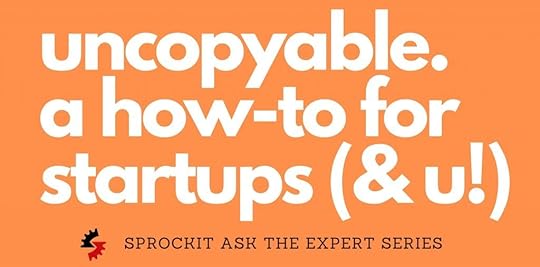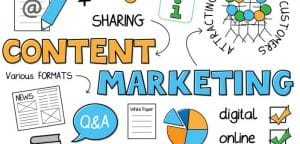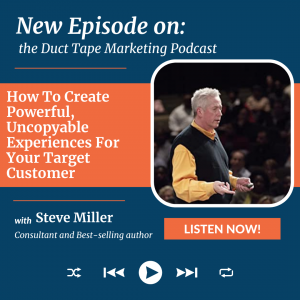Steve Miller's Blog, page 2
May 30, 2022
How To Create Powerful, Uncopyable Experiences For Your Target Customer
I was recently interviewed by John Jantsch for the Duct Tape Marketing Podcast, We’re talking about my latest book — Stealing Genuis: The Seven Levels of Adaptive Innovation.
 Improvement is not innovation and innovation is essential if your aim is to survive in today’s business environment. Fixating on improvement in today’s world is a dangerous path—one that ultimately leads to commoditization and irrelevance. In this episode, I talk with author, Steve Miller, about innovating in today’s business world by creating powerful, uncopyable experiences for your target customer.
Improvement is not innovation and innovation is essential if your aim is to survive in today’s business environment. Fixating on improvement in today’s world is a dangerous path—one that ultimately leads to commoditization and irrelevance. In this episode, I talk with author, Steve Miller, about innovating in today’s business world by creating powerful, uncopyable experiences for your target customer.
September 6, 2021
THE UNCOPYABLE APPROACH TO COVID MARKETING – AN INTERVIEW

My realization was, as I heard Tom Peters once say, a BLINDING FLASH OF THE OBVIOUS. And I immediately got to work helping my consulting clients and Circle Mastermind with a unique approach to uncopyable marketing and branding. The results were extraordinary. Here’s what I shared with my new BFFs and hosts, Nicole Marsalis and Dan Cole, in the newest SPROCKIT ASK THE EXPERT SERIES:
What is the single biggest and profound change that has happened to pretty much ALL of us, yet businesses have, for the most part, completely missed?Why it’s more important than ever to be uniquely and valuably differentThe #1 mistake businesses make when developing their marketing and branding strategiesThe new strategy I developed during COVID that has returned extraordinary results for my clientsThe marketing tool you need to put BACK in your toolbox and how to use it profitably this time.November 23, 2020
A Different Perspective On Being Thankful Using Mental Subtraction
In the movie, “It’s a Wonderful Life,” George Bailey (Jimmy Stewart) finds himself broke and no means to pay some big bills. Distraught he considers committing suicide so his wife would get insurance money. When that fails, he laments, “Maybe I should have never been born. Everybody would be better off.”
We know how it ends. He sees the world without him and truly appreciates what a “wonderful life” he’s had.
Last week I learned about a very interesting twist on being thankful, somewhat similar to George’s experience. It’s called “mental subtraction,” and I’m going to try it. You might find it a very powerful tool that gives you a different perspective, as well.
Watch the latest episode of UNCOPYABLE Business and learn this different slant!
Full Transcript
What does the movie It’s a Wonderful Life have to do with Thanksgiving this week? Well, you know, traditionally, this is the start of the holiday season and It’s a Wonderful Life e is one of the most popular, if not the most popular Christmas movie or holiday movie, depending upon how you look at it. And often you see people in, our family included, where we might start watching our holiday movies on Thanksgiving.
And that might be the first one, but in today’s topic, it’s got a little different connotation. Now, first of all, I should apologize to everybody because I know a number of you have been asking, where has Steve been for the last few weeks? Why isn’t he doing his weekly videos and stuff like that? And it’s real simple. It really has nothing to do with the COVID or anything like that.
We’ve been healthy, but I have a client, I have a great client I’ve been working with for 26, 27 years, something like that. I don’t know it for, for a long time. And they ha they are doing a moonshot online project and I’m playing a big part of that. And so, my time is wrapped up in this project.
I mean, it’s almost like having a J-O-B… which, oh, wow. Oh, I feel bad for you guys. But anyway, that’s why I am. I just haven’t had the time. And when I do, when I can kind of make the time, I will certainly get back to doing this. But I definitely wanted to talk about this because something came up, something came up a few days ago that just caught my attention. And I thought I have to talk about this.
I subscribe to a weekly newsletter, pretty cool little newsletter called Recomendo. I’m going to put it right here on, you know, here on the screen. And once a week, there are three people involved with Recomendo, that come up with five things that they are going to recommend. And it could be anything. It could be a product, it could be an app. It could be a book. It could be a movie, I don’t know, but it also could be something along the lines of a study.
They referenced this 2008 study that was done through the U S National Library of Medicine, and the National Institute of Health. Four people did this study that was titled It’s a Wonderful Life: Mentally Subtracting Positive Events Improves People’s Affective States, Contrary to Their Affective Forecast. I have no idea what the second part of that means, but the idea of mentally subtracting positive events… this whole concept caught my eye. And essentially what it’s all about is like It’s a Wonderful Life. Jimmy Stewart has lost his money. He doesn’t know what to do. He’s at his wit’s end. And, and he goes to the bridge thinking that he’s going to commit suicide. He prays to God. And he basically says something along the lines of this place would have been better off if I’d never been born. Clarence the angel who was there to help him thinks, Oh, that’s a good idea. I can do that. He makes the world like as if Jimmy Stewart had never been born. And so then of course, by the end of the movie, he starts to realize he has really contributed a lot to the world, despite his current situation.
Now, this study is about is a little twist on the, It’s a Wonderful Life premise. And his twist is fascinating to me because it’s very powerful. And I think we can all use this this week in particular, because Thanksgiving is here. For a lot of us, it’s not going to happen. Kay and Kelly and I were originally going to get together down in Sunriver, Oregon. But because of the travel restrictions, because of all the restaurants are closed, except for take out. And Kelly, if she came up to Oregon from California, she would probably have to quarantine for 14 days when she goes back. That just doesn’t work out. So, we canceled getting together for, for the holidays and, you know, we’ll get together another time.
But Thanksgiving is still about giving thanks. And even though we might not all be together, we will certainly be together virtually for part of the time, we still want to give thanks. And often, you know, when you’re sitting around the table, you might be praying before you eat. People will say, okay, why don’t we go around the table and everybody says something that they’re thankful for? And we talk about how we’re thankful for our family. We’re thankful for our job. We’re thankful for our home. It was something like that. And that’s great.
That’s all well and good to do that. But what this study back in 2008 came up with was the concept of doing what they call mental subtraction where instead the idea is to make a list of things that you should be, that you would be thankful for. Then think about what your life would be like without it.
And to use a very simple example, something that I don’t think I have ever actually said that I’m thankful for, but think about running water in our home. We are able to go get up in the morning, go take a shower, a hot shower in our bathrooms. We are able to go turn the faucet on and pour a glass of water for ourselves right there and drink it. Now imagine mental subtraction. Mentally subtract that and ask yourself what would your life be like if you didn’t have running water?
What would it be like if we didn’t have clean running water every day from our tap and taking a hot shower. Think about how difficult our lives would be. And of course, there are people all around the world who face that every single day, but because we don’t really think about what it would be like to be in that situation, we don’t recognize it. This practice of mental subtraction might wake you up and give you a little whack on the side of the head and you might actually start thinking about that, especially when you pick something important.
So, like, let’s say for example, I pick my smoking hot wife, Kay. What happened to bring her into my life and then look at it from the perspective of what if that had not happened.
You see, when I moved to Seattle, my minister back down in California told me that he had a friend who had a church up here and he connected me with him. When I got here, I called him just to introduce myself. He said, Oh, you gotta come to church. You’ll really enjoy church. So, I said, okay, yeah, I’ll be at church. 10 days after I moved to Seattle, I went to church. And when I walked into church, the very first person I saw was this beautiful, cute young brunette.
I went up to her and said, my name is Steve. This is the first time I’ve ever been here. Can you tell me a little bit about the church and the people and stuff like that? And she said, my name is Kay. This is my first time here at the church.
I said, Oh, that’s great! We can hang out together. It might be a little bit more comfortable. She looked me in the eye, and said, I don’t think so, and walked away. The rest of the time at church, I was like a little puppy dog… kind of stalking her, you know, in between the service and Sunday school classes. I managed to get her phone number, but it still took me six weeks to convince her to go out with me.
When we went out, the first two dates that I planned were abysmal failures. I found out later on that she told her roommates that if our third date was a failure, that that was it. She wasn’t going to go out with me anymore. And yet here we are, 33 years later, married, got a great kid Kelly. So I think back and because of this mental subtraction exercise that I ask myself, wow, what could have happened to have prevented me from meeting Kay. What would my life have been like?
I have to believe it wouldn’t have been this great. I have to believe that.
So it enhances the thankfulness that you have in your heart, you know, for this and you can practice this literally every day. Some people get up and they have their morning ritual of starting the day. And very often one of the things that we do is to write down things that we’re thankful for. But with mental subtraction you ask, what would my life be like if I didn’t have this in my life?
And what, what would have happened in my life if those circumstances and events that led me to this person or event did not happen? I think it will give you a greater feeling of gratitude and thankfulness
You might want to try and do that this week for Thanksgiving. I know I’m going to, because I think this is a really, really excellent way of approaching gratitude. So, in this week of Thanksgiving, even during COVID, there’s still a lot that I know many of us have to be thankful for.
If you have people who are sick and you’re in your family, then we’re praying for you guys. For the rest of us, let’s be smart. Wear your masks and socially distance, just follow what the experts are telling us to do, because that’s the only way we’re going to get out of this.
So, with that, I’m not sure exactly when I’ll be back because I’ve still got the moonshot going on, but I will do my best to talk to you again soon. Let’s all be thankful.
I’m Steve Miller, better known as Kelly’s Dad and Marketing Gunslinger. Thanks again for joining me this week. And I will see you again on another UNCOPYABLE Business video.
In the meantime, BE UNCOPYABLE, I’ll see you.
September 22, 2020
How to Use Empathy Marketing and Creating the Rules

Before Covid it was pretty common for us to treat our personal and professional lives as somewhat separate. B2B companies didn’t use empathy marketing. Because of Covid, though, the overlap of home and office has grown a lot.
If you’re not embracing honest empathy marketing in your messaging, you may be seen as callous and turning people off. Steve shares why this is so important now.
In addition, he also shares some pretty interesting reading from the Recomendo newsletter and author Ryan Holiday about quantity time versus quality time, and Steve’s philosophy of creating the rules of competition.
Check out this week’s UNCOPYABLE Business video!
September 14, 2020
Account-Based Marketing is a Shiny Object
One of the current hot business marketing fads is “account-based marketing,” or ABM.
On the surface, ABM sounds really cool and very, very smart. And some of the new jargon used by ABM providers is just techno-babble. It seems to almost as popular today as “pivot.”
I’m not saying ABM is bad. The guts of it are great. I just want to protect my BFFs from being oversold on something that’s actually not new at all.
Why do I say this? Watch this week’s UNCOPYABLE Business.
My smokin’ hot wife, Kay, put together a FREE gift for you titled, “5 UNCOPYABLE Strategies.” Do you have it yet? CLICK HERE!
September 2, 2020
3 More Lessons from the Red High Heels
Last week Steve shared and analyzed a campaign ad video that’s gone viral. As of today, Kimberly Klacik’s ad promoting her for Congress in Maryland has over 720,000 views on YouTube. (If you haven’t seen it yet, go watch it before watching this week’s video. CLICK HERE.)
After getting a number of additional lessons through BFFs comments, Steve went back and watched the video again.
He pulled out THREE more lessons. And they’re good ones!
Watch this week’s UNCOPYABLE Business video!
Do you have Steve’s book? CLICK HERE!
August 24, 2020
Uncopyable Lessons from Red High Heels
621,051 views on YouTube
11.4 million views on Twitter
475,000 views on Instagram
It doesn’t matter who’s side you’re on in this election, there’s a woman running for office in Baltimore, MD who’s campaign video has gone crazy viral.
Kimberly Klacik is a Republican candidate running for Congress in Maryland. She is, apparently, up against a very strong Democrat machine that’s held that office for 53 years. A real underdog.
But she has clearly touched nerves with this video, using both very smart, time-tested marketing and branding techniques, but also breaking a few of those rules along the way. Red high heels?
Watch her video with Steve and see how he breaks down the marketing and branding lessons we can all learn from.
Do you have Steve’s book? CLICK HERE!
August 11, 2020
When it comes marketing today you need these 3 things
Whatever the heck is happening right now, let’s stop calling it the “new normal.”
There’s nothing normal about this and we are a long way from settling into anything I think we can call “normal.”
Be that as it may, we are ALL working our butts off trying to generate new business — whether with old clients or new. I have a friend who sells facility supplies who told me with of his top ten previous clients still haven’t reopened, so has pivoted his moose and grown sales back to equal his old levels. Many of us are attempting the same.
That said, we cannot fall back into marketing on a level playing field! We must still be seen as suppliers of choice. And in order to do that, we must turn our focus on being very good at 3 things.
Watch Steve’s UNCOPYABLE Business video and learn what those 3 things are and why they’re so critical.
Like this video? You might also like this blast from the past:
We Don’t See Things As They Really Are
August 5, 2020
How to be Uncopyable for Personal Branding
While Steve’s Amazon #1 best seller, UNCOPYABLE: How to Create an Unfair Advantage Over Your Competition, is primarily aimed at small business, most of the strategies and tactics are also applicable to personal branding!
Kate Strachnyi (https://www.linkedin.com/in/kate-strachnyi-data), is a certified LinkedIn rock star with over 129,000 followers! She read Steve’s book and wanted to discuss how the UNCOPYABLE philosophy could be translated into personal branding.
This video introduces Kate and provides the link to watch their full interview.
Click here to watch our full interview
July 28, 2020
How to Profit From Content Marketing

Although Content Marketing seems to have appeared on the radar screen just in the last couple of years, in reality it’s been around for a very long time.
The problem with content marketing is organizations (in particular small B2B companies) sometime have a difficult time defining exactly how they can use it to grow their business.
In this week’s UNCOPYABLE Business video, Steve shares how one company successfully incorporates content marketing when their primary product is a commodity.
Not subscribed to my weekly videos?





